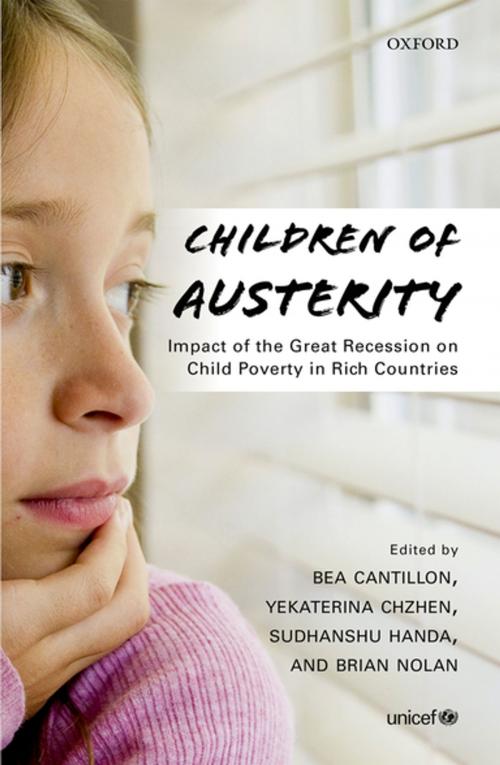Children of Austerity
Impact of the Great Recession on Child Poverty in Rich Countries
Business & Finance, Economics, Public Finance, Economic Development| Author: | ISBN: | 9780192518897 | |
| Publisher: | OUP Oxford | Publication: | April 7, 2017 |
| Imprint: | OUP Oxford | Language: | English |
| Author: | |
| ISBN: | 9780192518897 |
| Publisher: | OUP Oxford |
| Publication: | April 7, 2017 |
| Imprint: | OUP Oxford |
| Language: | English |
The 2008 financial crisis triggered the worst global recession since the Great Depression. Many OECD countries responded to the crisis by reducing social spending. Through 11 diverse country case studies (Belgium, Germany, Greece, Hungary, Ireland, Italy, Japan, Spain, Sweden, United Kingdom, and the United States), this volume describes the evolution of child poverty and material well-being during the crisis, and links these outcomes with the responses by governments. The analysis underlines that countries with fragmented social protection systems were less able to protect the incomes of households with children at the time when unemployment soared. In contrast, countries with more comprehensive social protection cushioned the impact of the crisis on households with children, especially if they had implemented fiscal stimulus packages at the onset of the crisis. Although the macroeconomic 'shock' itself and the starting positions differed greatly across countries, while the responses by governments covered a very wide range of policy levers and varied with their circumstances, cuts in social spending and tax increases often played a major role in the impact that the crisis had on the living standards of families and children.
The 2008 financial crisis triggered the worst global recession since the Great Depression. Many OECD countries responded to the crisis by reducing social spending. Through 11 diverse country case studies (Belgium, Germany, Greece, Hungary, Ireland, Italy, Japan, Spain, Sweden, United Kingdom, and the United States), this volume describes the evolution of child poverty and material well-being during the crisis, and links these outcomes with the responses by governments. The analysis underlines that countries with fragmented social protection systems were less able to protect the incomes of households with children at the time when unemployment soared. In contrast, countries with more comprehensive social protection cushioned the impact of the crisis on households with children, especially if they had implemented fiscal stimulus packages at the onset of the crisis. Although the macroeconomic 'shock' itself and the starting positions differed greatly across countries, while the responses by governments covered a very wide range of policy levers and varied with their circumstances, cuts in social spending and tax increases often played a major role in the impact that the crisis had on the living standards of families and children.















